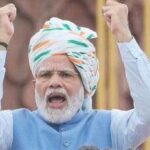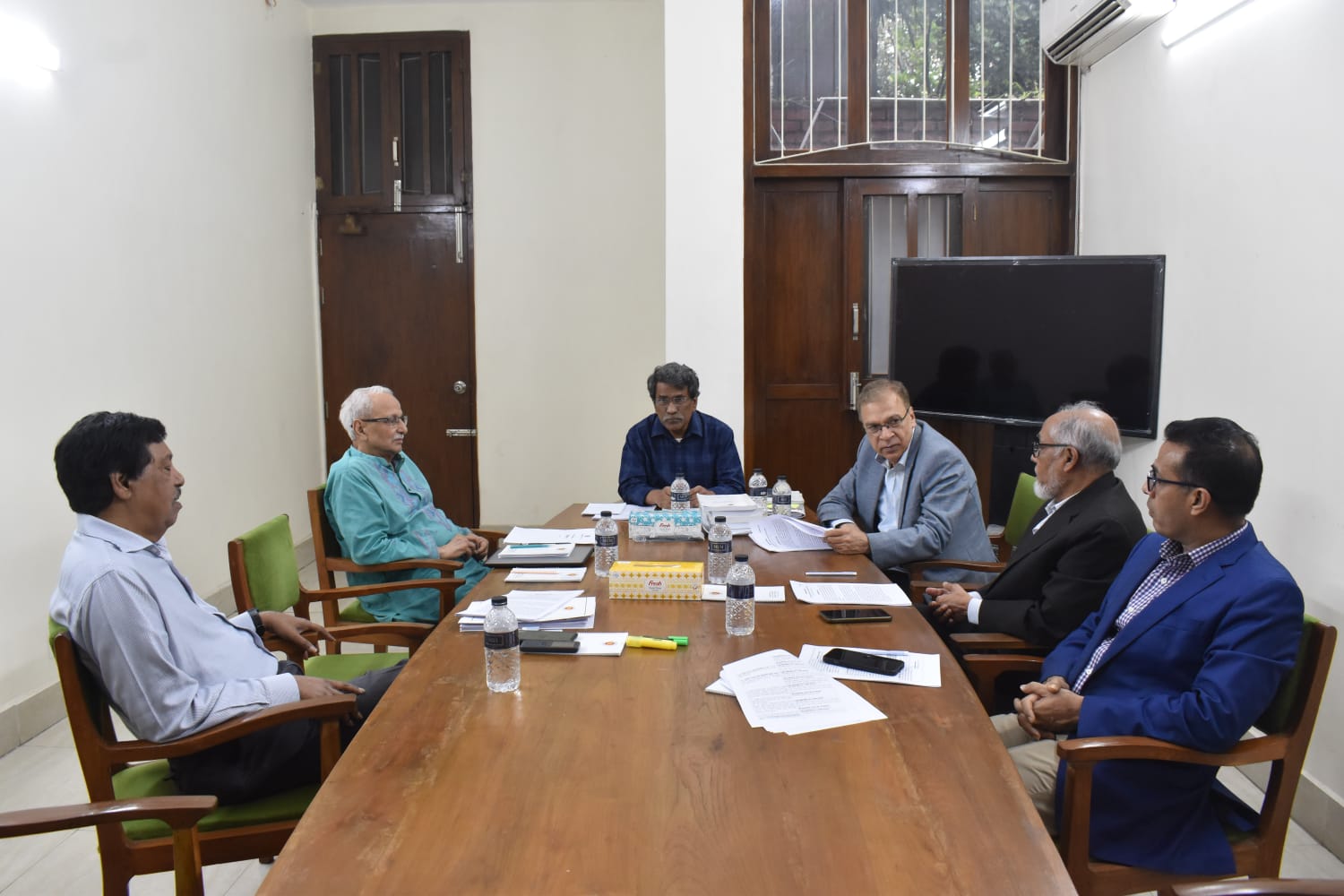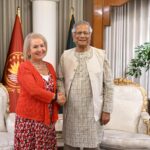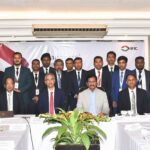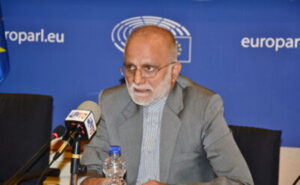 Md Jubair: September 05, 2022 marks the 1st death anniversary of a real champion of Kashmir cause Shaikh Tajammul-ul-Islam. The master brain of ongoing Kashmir freedom movement, noted journalist, intellectual, lawyer and Executive Director of Kashmir Media Service, Shaikh Tajammul-ul-Islam left for heavenly abode on September 05, last year, after fighting against coronavirus for over one month. Born in Srinagar in 1954, Shaikh Tajammul-ul-Islam completed his LLB and M.A Urdu from Kashmir University, Srinagar (summer capital of Indian illegally occupied Jammu and Kashmir), in 1975 and 1980, respectively. A revolutionary student leader during his days at the University, he remained the Nazim-e-Aala (president) of Islami Jamiat-e-Talaba in IIOJK from 1979 to 1984. In his journalistic career in the occupied territory, he worked as Chief Editor of Daily Azaan and Editor of several newspapers, weekly and fortnightly magazines from 1973 to 1980 and contributed a lot to the Kashmir movement. He also practiced law in Srinagar from 1975-1984. He was a true advocate of Kashmiris’ right to self-determination in his decades-long career. A born freedom-fighter, Shaikh Tajammul-ul-Islam actively and practically opposed India’s illegal occupation of Jammu and Kashmir. He had to face Indian wrath and was even arrested several times from 1974 to 1984 for challenging Indian illegal hold on Jammu and Kashmir. Ultimately, he had to migrate to Pakistan due to victimisation by Indian forces for his pro-freedom and anti-India stance and activities. Following the unfortunate incident of the Fall of Dhaka in 1971, India had launched a malicious propaganda against Pakistan claiming that the country is no more capable of supporting the Kashmiris’ freedom struggle. This incident had sent shockwaves among the Kashmiri Muslims and they felt desperate and later, the sighing of Indira-Abdullah Accord in 1975 had further added to this desperation. At this critical time, the Kashmiri people needed a visionary person who could guide and lead them out of this situation and Shaikh Tajammul-ul-Islam did this to perfection. He played an important role in boosting their morale. He planned an international conference on Kashmir in 1982. Although, India disallowed the conference, yet the preparations for the event mobilize the Kashmiri people, particularly the youth, and rejuvenated them to carry forward their struggle for right to self-determination, at all costs. Taking Shaikh Tajammul-ul-Islam as a big challenge to its illegal occupation of Jammu and Kashmir, New Delhi intensified its tactics to victimize him, making it difficult for him to continue his stay in IIOJK that led to his migration to Nepal. He founded Islamic Sevak Sangh during his stay in Nepal and managed scholarships for deserving Muslim students from the platform of this organisation. Now it has become the largest Muslim organisation of the Nepali Muslims. He also served as Coordinator of Muslim Student Organisation in South Asia under International Islamic Federation of Student Organisations (IIFSO) during his stay in Kathmandu. After his migration to Pakistan, Shaikh Tajammul-ul-Islam headed the Institute of Kashmir Affairs from 1992 to 2000. He worked with News Section of Pakistan Television (PTV) from 1998 to 1999 and joined Kashmir Media Service as Executive Director in 1999 and remained associated with it till his last breath. He was also Chief Editor of Kashmir Insight magazine. He wrote articles and analyses in English and Urdu on Kashmir. The veteran journalist attended several conferences and seminars on Kashmir in Pakistan and abroad including Nepal, Bangladesh, Taiwan, Singapore, Maldives, Iran, Saudi Arabia, UK, Canada and many European countries. In his speeches, he highlighted various aspects of the Kashmir dispute and the Indian atrocities on the people of IIOJK. It was due to his efforts and leadership that Kashmir Media Service has become a strong and authentic voice for the oppressed Kashmiris.
Md Jubair: September 05, 2022 marks the 1st death anniversary of a real champion of Kashmir cause Shaikh Tajammul-ul-Islam. The master brain of ongoing Kashmir freedom movement, noted journalist, intellectual, lawyer and Executive Director of Kashmir Media Service, Shaikh Tajammul-ul-Islam left for heavenly abode on September 05, last year, after fighting against coronavirus for over one month. Born in Srinagar in 1954, Shaikh Tajammul-ul-Islam completed his LLB and M.A Urdu from Kashmir University, Srinagar (summer capital of Indian illegally occupied Jammu and Kashmir), in 1975 and 1980, respectively. A revolutionary student leader during his days at the University, he remained the Nazim-e-Aala (president) of Islami Jamiat-e-Talaba in IIOJK from 1979 to 1984. In his journalistic career in the occupied territory, he worked as Chief Editor of Daily Azaan and Editor of several newspapers, weekly and fortnightly magazines from 1973 to 1980 and contributed a lot to the Kashmir movement. He also practiced law in Srinagar from 1975-1984. He was a true advocate of Kashmiris’ right to self-determination in his decades-long career. A born freedom-fighter, Shaikh Tajammul-ul-Islam actively and practically opposed India’s illegal occupation of Jammu and Kashmir. He had to face Indian wrath and was even arrested several times from 1974 to 1984 for challenging Indian illegal hold on Jammu and Kashmir. Ultimately, he had to migrate to Pakistan due to victimisation by Indian forces for his pro-freedom and anti-India stance and activities. Following the unfortunate incident of the Fall of Dhaka in 1971, India had launched a malicious propaganda against Pakistan claiming that the country is no more capable of supporting the Kashmiris’ freedom struggle. This incident had sent shockwaves among the Kashmiri Muslims and they felt desperate and later, the sighing of Indira-Abdullah Accord in 1975 had further added to this desperation. At this critical time, the Kashmiri people needed a visionary person who could guide and lead them out of this situation and Shaikh Tajammul-ul-Islam did this to perfection. He played an important role in boosting their morale. He planned an international conference on Kashmir in 1982. Although, India disallowed the conference, yet the preparations for the event mobilize the Kashmiri people, particularly the youth, and rejuvenated them to carry forward their struggle for right to self-determination, at all costs. Taking Shaikh Tajammul-ul-Islam as a big challenge to its illegal occupation of Jammu and Kashmir, New Delhi intensified its tactics to victimize him, making it difficult for him to continue his stay in IIOJK that led to his migration to Nepal. He founded Islamic Sevak Sangh during his stay in Nepal and managed scholarships for deserving Muslim students from the platform of this organisation. Now it has become the largest Muslim organisation of the Nepali Muslims. He also served as Coordinator of Muslim Student Organisation in South Asia under International Islamic Federation of Student Organisations (IIFSO) during his stay in Kathmandu. After his migration to Pakistan, Shaikh Tajammul-ul-Islam headed the Institute of Kashmir Affairs from 1992 to 2000. He worked with News Section of Pakistan Television (PTV) from 1998 to 1999 and joined Kashmir Media Service as Executive Director in 1999 and remained associated with it till his last breath. He was also Chief Editor of Kashmir Insight magazine. He wrote articles and analyses in English and Urdu on Kashmir. The veteran journalist attended several conferences and seminars on Kashmir in Pakistan and abroad including Nepal, Bangladesh, Taiwan, Singapore, Maldives, Iran, Saudi Arabia, UK, Canada and many European countries. In his speeches, he highlighted various aspects of the Kashmir dispute and the Indian atrocities on the people of IIOJK. It was due to his efforts and leadership that Kashmir Media Service has become a strong and authentic voice for the oppressed Kashmiris.
Shaikh Tajammul-ul-Islam never compromised on the basic principles of the Kashmir dispute. He always advocated a solution to the dispute in accordance with the Kashmiris’ aspirations and the relevant United Nations resolutions. He was highly respected in journalistic circles for his integrity and intellectual acumen. His services for the Kashmir cause will always be remembered in the history of Jammu and Kashmir.
